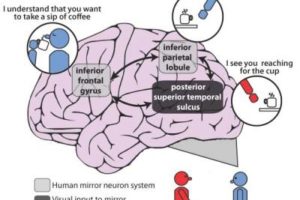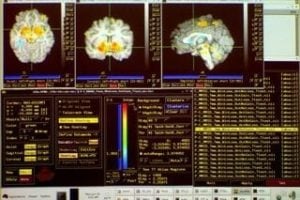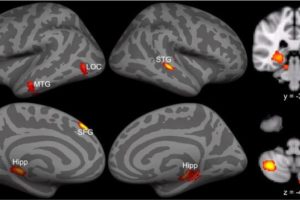american journal of psychiatry
Study challenges bipolar depression treatment guidelines
A study led by a UCLA Neuropsychiatric Institute researcher challenges standard treatment guidelines for bipolar depression that recommend discontinuing antidepressants within the first six months after symptoms ease. Study participants treated under the guidelines relapsed at nearly twice the rate of those who continued taking antidepressants in conjunction with their mood stabilizer medication during the first year after remission of acute bipolar depression. The researchers found no increased risk of manic relapse in those who continued the medication for one year.
Study Suggests Bipolar Disorder May Cause Progressive Brain Damage
A study by researchers at the San Francisco VA Medical Center indicates that people with bipolar disorder may suffer progressive brain damage. ?For the first time, our study supports the idea that there may be on-going damage to certain regions of the brain as the illness progresses,? said the study?s lead author Raymond Deicken, MD. Deicken is the medical director of the Psychiatric Partial Hospital Program at the San Francisco VA Medical Center and UCSF associate professor of psychiatry.
People with major depression may have higher suicide risk
People suffering from major depression and posttraumatic stress disorder (PTSD) are more likely to attempt suicide, and women with both disorders are more likely to have attempted suicide than men with both disorders, according to a new report in the March 2003 American Journal of Psychiatry, the monthly scientific journal of the American Psychiatric Association.
Brain images reveal effects of antidepressants
The experiences of millions of people have proved that antidepressants work, but only with the advent of sophisticated imaging technology have scientists begun to learn exactly how the medications affect brain structures and circuits to bring relief from depression. Researchers at UW-Madison and UW Medical School recently added important new information to the growing body of knowledge. For the first time, they used functional magnetic resonance imaging (fMRI)–technology that provides a view of the brain as it is working–to see what changes occur over time during antidepressant treatment while patients experience negative and positive emotions.
Brain images reveal effects of antidepressants
The experiences of millions of people have proved that antidepressants work, but only with the advent of sophisticated imaging technology have scientists begun to learn exactly how the medications affect brain structures and circuits to bring relief from depression. Researchers at the University of Wisconsin-Madison and UW Medical School recently added important new information to the growing body of knowledge. For the first time, they used functional magnetic resonance imaging (fMRI)–technology that provides a view of the brain as it is working–to see what changes occur over time during antidepressant treatment while patients experience negative and positive emotions.
Cocaine harms brain’s ‘pleasure center’
New research results strongly suggest that cocaine bites the hand that feeds it, in essence, by harming or even killing the very brain cells that trigger the “high” that cocaine users feel. This most comprehensive description yet of cocaine-induced damage to key cells in the human brain’s dopamine “pleasure center” may help explain many aspects of cocaine addiction, and perhaps aid the development of anti-addiction drugs. It also could help scientists understand other disorders involving the same brain cells, including depression.




